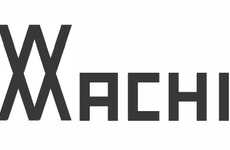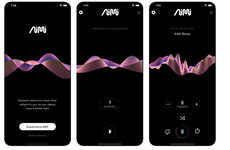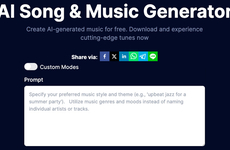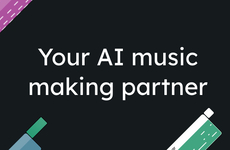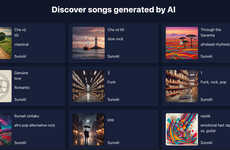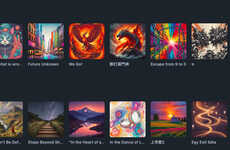
Nigel Goodwin — June 21, 2006 — Unique
References: news.bbc
It looks like popular music is going to get even more commercial than it already is.
A computer program has been developed that supposedly increases a songwriter's chance of scoring a hit. The program, called Platinum Blue Music Intelligence, is already having an influence on what you're hearing. Several big record labels, including Sony BMG, are already using it, and some artists, including Moby, are advocating it.
According to the BBC, "It breaks songs down into 30 or so component parts including rhythm, melody, harmony, beat, cadence, timbre, pitch, and gives each a number.
"What they have found is just about all hit songs, no matter what genre, fit the same pattern. Match that pattern and then promote the song right, and you have an 80% chance of success."
The system's creators insist it will not stifle innovation or dehumanize the music.
Mike McCready, CEO of Platinum Blue, says: "If you look at the music that has been invented since Beethoven, all of the hit songs in every new genre conform to the same mathematical patterns.
"Reticent artists need to understand this is just a tool to help them get their art to a mass audience, rather than affect the art they're making."
But some artists are unimpressed. "I don't like the idea that this is influencing record companies in choosing songs," said Amanda Ghost, co-writer for chart-topping singer James Blunt.
"It's just making everything the same. The biggest problem today, in music, is it's too much of a marketing industry and not enough of a music industry."
A computer program has been developed that supposedly increases a songwriter's chance of scoring a hit. The program, called Platinum Blue Music Intelligence, is already having an influence on what you're hearing. Several big record labels, including Sony BMG, are already using it, and some artists, including Moby, are advocating it.
According to the BBC, "It breaks songs down into 30 or so component parts including rhythm, melody, harmony, beat, cadence, timbre, pitch, and gives each a number.
"What they have found is just about all hit songs, no matter what genre, fit the same pattern. Match that pattern and then promote the song right, and you have an 80% chance of success."
The system's creators insist it will not stifle innovation or dehumanize the music.
Mike McCready, CEO of Platinum Blue, says: "If you look at the music that has been invented since Beethoven, all of the hit songs in every new genre conform to the same mathematical patterns.
"Reticent artists need to understand this is just a tool to help them get their art to a mass audience, rather than affect the art they're making."
But some artists are unimpressed. "I don't like the idea that this is influencing record companies in choosing songs," said Amanda Ghost, co-writer for chart-topping singer James Blunt.
"It's just making everything the same. The biggest problem today, in music, is it's too much of a marketing industry and not enough of a music industry."
Trend Themes
1. Music Pattern Analysis - Computer programs that analyze music patterns to generate hit songs are gaining popularity, disrupting the music innovation process.
2. Data-driven Music Production - The use of music intelligence programs like Platinum Blue is increasing the reliance on data to produce hit music that appeals to the masses.
3. Automation in Music Composition - Advances in music artificial intelligence are changing how music is composed and produced, with significant implications for the music industry.
Industry Implications
1. Record Label Industry - Music intelligence programs like Platinum Blue are disrupting the way record labels identify and promote hit songs, leading to potential opportunities in data analysis and marketing.
2. Music Production Industry - Data-driven music production is gaining traction, leading to opportunities for software development and innovation in the music production process.
3. Artificial Intelligence Industry - Automation in music composition and production is a growing application of artificial intelligence, presenting opportunities for AI developers and integrators.
4.2
Score
Popularity
Activity
Freshness


